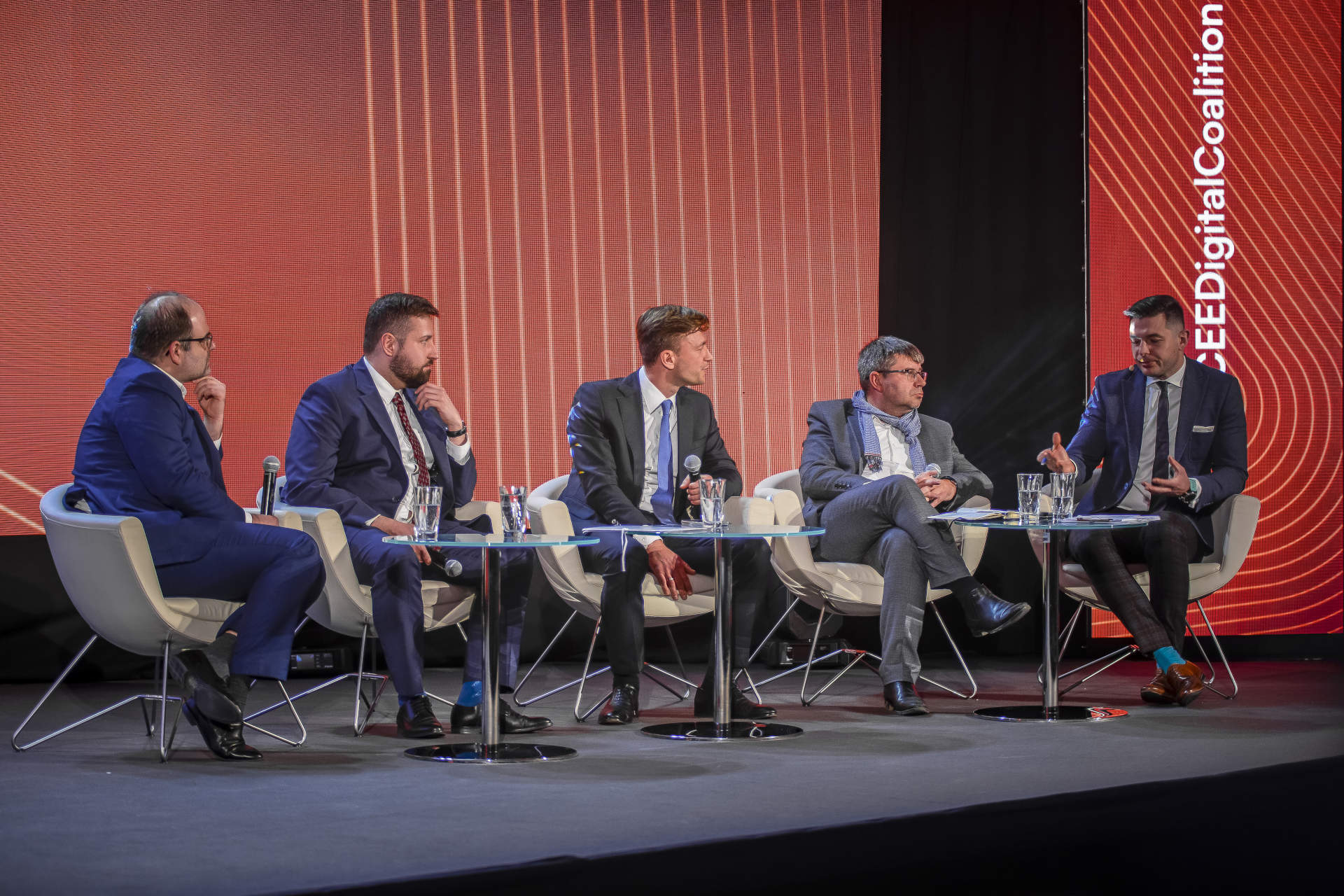Maintaining digital infrastructure in schools is just as important as raising funds to buy it – experts at CEE Edu Digital Summit

Carrying out public contracts for education's digitisation is an investment for the private sector. However, from the point of view of enterprises, it will be difficult to maintain the technological infrastructure that has been created – Mikołaj Bobinski, a representative of Lenovo Poland, said at the CEE Edu Digital Summit in Lublin. Other participants of the panel discussion on financing the digitisation of education agreed with him.
The CEE Edu Digital Summit is an event organised by the CEE Digital Coalition and the Digital Poland Association, which was held for the first time in Lublin and was devoted to issues related to the digital transformation of education systems in Poland and the CEE region. The panellists discussed the challenges of financing the digital transformation of Polish schools.
Asked about the challenges and whether talks between the private sector and the government side about money are a difficult topic, Tomasz Chomicki of Samsung Electronics Poland replied that “it is important that the conversation is there at all”. He pointed out that although transparency and legislative control are necessary, this has the consequence of prolonging the public procurements' process. On top of that, there are additional costs associated with logistics, for example. - It is a big challenge to prepare a procurement with well estimated costs – he said.
The debate touched on the attitude of business towards public procurement. - This is an investment, also from the industry. It involves chasing the speeding up of market needs, in terms of digitalisation the needs were boosted by the pandemic. Now we are catching up with it – said the representative of Lenovo Poland, Mikołaj Bobinski. He pointed out that from the point of view of enterprises, it is going to be a "very difficult" challenge to maintain the school infrastructure.
Bobinski recalled that the currently dominant financing model in Poland is a combination of EU and state funds, which works well when it comes to the purchase of equipment itself. – There is an emerging trend - currently being developed in Italy, Benelux, Nordic countries - to include a third stream. Either user investment or local government. The maintenance of the student's device falls to the university. This can also be subsidised by the region or city but can also be done by parents or public institutions – he reported. – This model is called XaaS - everything as a service. It is not just the device, but there is also its support and maintenance. We can see a growing trend here. We are definitely going to talk about it with the government side – supplemented the Lenovo Poland representative.
This was also pointed out by the Undersecretary of State for Digitalisation at the Chancellery of the Prime Minister, Pawel Lewandowski, stating that “whatever we invest in – it will have to be maintained later”. As he pointed out, when funding this area, “we will reach for state money more often than EU money”.
The person responsible for the digitisation of education at the Ministry of Education, Mateusz Rafal, said that a systemic change in the approach to funding digitisation projects is now being observed. – It is encouraging to see a move away from 'island' funding. Increasingly, we are seeing a "cloud" of funding model being created. On the one hand we have regional programmes and funds such as European Funds for Digital Development), such as European Funds for Social Development, and on the other hand we have the state budget. There is already a broad understanding that equipment needs to be bought, skills need to be deepened - he said. He pointed out that although some of the models used abroad are "inspiring", "nothing can replace the local perspective". - Attempts to implement external solutions may prove to have dramatic consequences – he said, adding that "a Polish model is evolving at the moment, in which we are learning to cooperate with the digital industry".
Another representative of the governmental side, i.e., the Head of the Centre for Digital Poland Projects, Wojciech Szajnar, expressed his view on cooperation between the private sector and the state. – The starting point for dialogue should not be the expectations of the market, but the expectations of the state. The state should define the objectives it wants to achieve, and the market provides the methods to achieve them – he said. – The objectives of the state, the objectives of education, take precedence over the expectations that the market may form. However, the market has a very important role to play, that of being a supplier – he stressed.
Tomasz Chomicki from Samsung Electronics Polska referred to this. – The decisive voice belongs to the customer, in this case to the state authorities. The voice of the customer must be respected, as it is the customer who has the budget – he said. – Let us not bid on who does more and who does less. What is important is that we know how to work with each other and how to reach a compromise. Thanks to this, we will be able to build Polish education, digitisation of schools. This is the most important thing from the point of view of us as citizens and children – he concluded.